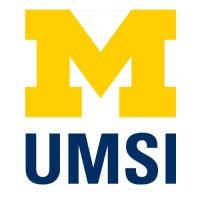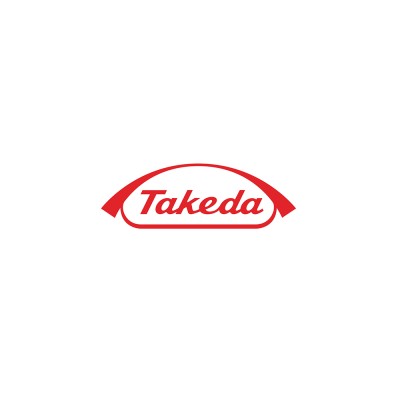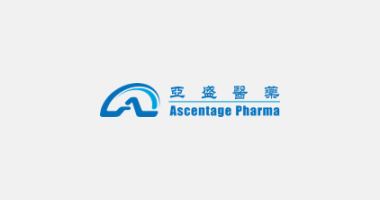Olverembatinib: A Beacon of Hope in Chronic Myeloid Leukemia Treatment
December 11, 2024, 9:57 am

Location: United Kingdom, England, Cambridge
Employees: 10001+
Founded date: 1999
Total raised: $1.4B

Location: United States, Michigan, Ann Arbor
Employees: 10001+
Founded date: 1817
Total raised: $5.2M
In the ever-evolving landscape of cancer treatment, chronic myeloid leukemia (CML) presents a formidable challenge. Traditional therapies often falter, leaving patients in a desperate search for alternatives. Enter olverembatinib, a third-generation tyrosine kinase inhibitor (TKI) that has emerged as a potential game-changer. Recent presentations at the 66th American Society of Hematology (ASH) Annual Meeting have shed light on its promising efficacy and safety profile, igniting hope for patients battling this relentless disease.
The ASH Annual Meeting, a premier event in the hematology calendar, serves as a platform for groundbreaking research. This year, olverembatinib was front and center, showcasing its potential as a second-line therapy for patients with non-T315I-mutant CP-CML. The data presented by Prof. Weiming Li from Wuhan Union Hospital revealed a complete cytogenetic response (CCyR) rate of 74.1% and a major molecular response (MMR) rate of 40.6% in patients resistant to prior TKIs. These numbers are not just statistics; they represent lives transformed, a glimmer of hope in a landscape often overshadowed by despair.
Olverembatinib is not just another drug; it is a lifeline for those who have exhausted their options. As the first approved third-generation BCR-ABL inhibitor in China, it has already made significant strides in treating TKI-resistant CP-CML. The recent findings underscore its potential to offer a safe and effective second-line treatment, particularly for patients who have struggled with second-generation TKIs. The study's safety profile is equally reassuring, with no new safety signals reported, allowing patients to approach treatment with renewed confidence.
The data also highlight the drug's ability to improve over time. As patients progress through treatment cycles, the efficacy of olverembatinib appears to enhance, suggesting that persistence may yield even greater rewards. This is a critical insight for oncologists and patients alike, as it emphasizes the importance of adherence to treatment regimens.
Moreover, olverembatinib's journey is not confined to the borders of China. The drug has received FDA clearance to enter a global registrational Phase III trial, expanding its reach and potential impact. This global perspective is vital, as CML knows no boundaries. The hope is that olverembatinib will soon be accessible to patients worldwide, providing a much-needed alternative in the fight against this challenging disease.
In a separate presentation, further data from a global study reinforced olverembatinib's potential in overcoming resistance to other TKIs, such as ponatinib and asciminib. The 1.5-year follow-up data revealed that 58.3% of evaluable patients achieved CCyR, while 45.3% achieved MMR. These results are particularly encouraging for patients who have faced multiple treatment failures. The ability of olverembatinib to deliver consistent antileukemic activity in heavily pretreated patients is a testament to its robustness as a therapeutic option.
The safety profile of olverembatinib also deserves attention. Among the 66 subjects in the global study, 93.9% reported treatment-emergent adverse events, but the majority were manageable. Common adverse events included elevated creatine phosphokinase and thrombocytopenia, yet the overall tolerability remains favorable. This balance of efficacy and safety is crucial in oncology, where the side effects of treatment can often be as daunting as the disease itself.
Ascentage Pharma, the company behind olverembatinib, is committed to addressing unmet clinical needs. Their dedication is evident in the extensive research and development efforts that have propelled olverembatinib to the forefront of CML treatment. With a robust pipeline of innovative drug candidates, Ascentage Pharma is not just focused on one solution but is actively working to provide a spectrum of therapies for patients in need.
The implications of olverembatinib's success extend beyond individual patients. As more data emerges, the potential for olverembatinib to be included in treatment guidelines grows. This could reshape the standard of care for CML, offering new hope to patients who have long felt the weight of their diagnosis.
In conclusion, olverembatinib stands as a beacon of hope in the fight against chronic myeloid leukemia. Its promising efficacy, favorable safety profile, and potential for global accessibility make it a vital player in the oncology landscape. As researchers continue to unveil its capabilities, the hope is that olverembatinib will not only change the course of treatment for CML but also inspire further innovations in cancer therapy. The journey is far from over, but with olverembatinib, the future looks brighter for patients battling this relentless disease.
The ASH Annual Meeting, a premier event in the hematology calendar, serves as a platform for groundbreaking research. This year, olverembatinib was front and center, showcasing its potential as a second-line therapy for patients with non-T315I-mutant CP-CML. The data presented by Prof. Weiming Li from Wuhan Union Hospital revealed a complete cytogenetic response (CCyR) rate of 74.1% and a major molecular response (MMR) rate of 40.6% in patients resistant to prior TKIs. These numbers are not just statistics; they represent lives transformed, a glimmer of hope in a landscape often overshadowed by despair.
Olverembatinib is not just another drug; it is a lifeline for those who have exhausted their options. As the first approved third-generation BCR-ABL inhibitor in China, it has already made significant strides in treating TKI-resistant CP-CML. The recent findings underscore its potential to offer a safe and effective second-line treatment, particularly for patients who have struggled with second-generation TKIs. The study's safety profile is equally reassuring, with no new safety signals reported, allowing patients to approach treatment with renewed confidence.
The data also highlight the drug's ability to improve over time. As patients progress through treatment cycles, the efficacy of olverembatinib appears to enhance, suggesting that persistence may yield even greater rewards. This is a critical insight for oncologists and patients alike, as it emphasizes the importance of adherence to treatment regimens.
Moreover, olverembatinib's journey is not confined to the borders of China. The drug has received FDA clearance to enter a global registrational Phase III trial, expanding its reach and potential impact. This global perspective is vital, as CML knows no boundaries. The hope is that olverembatinib will soon be accessible to patients worldwide, providing a much-needed alternative in the fight against this challenging disease.
In a separate presentation, further data from a global study reinforced olverembatinib's potential in overcoming resistance to other TKIs, such as ponatinib and asciminib. The 1.5-year follow-up data revealed that 58.3% of evaluable patients achieved CCyR, while 45.3% achieved MMR. These results are particularly encouraging for patients who have faced multiple treatment failures. The ability of olverembatinib to deliver consistent antileukemic activity in heavily pretreated patients is a testament to its robustness as a therapeutic option.
The safety profile of olverembatinib also deserves attention. Among the 66 subjects in the global study, 93.9% reported treatment-emergent adverse events, but the majority were manageable. Common adverse events included elevated creatine phosphokinase and thrombocytopenia, yet the overall tolerability remains favorable. This balance of efficacy and safety is crucial in oncology, where the side effects of treatment can often be as daunting as the disease itself.
Ascentage Pharma, the company behind olverembatinib, is committed to addressing unmet clinical needs. Their dedication is evident in the extensive research and development efforts that have propelled olverembatinib to the forefront of CML treatment. With a robust pipeline of innovative drug candidates, Ascentage Pharma is not just focused on one solution but is actively working to provide a spectrum of therapies for patients in need.
The implications of olverembatinib's success extend beyond individual patients. As more data emerges, the potential for olverembatinib to be included in treatment guidelines grows. This could reshape the standard of care for CML, offering new hope to patients who have long felt the weight of their diagnosis.
In conclusion, olverembatinib stands as a beacon of hope in the fight against chronic myeloid leukemia. Its promising efficacy, favorable safety profile, and potential for global accessibility make it a vital player in the oncology landscape. As researchers continue to unveil its capabilities, the hope is that olverembatinib will not only change the course of treatment for CML but also inspire further innovations in cancer therapy. The journey is far from over, but with olverembatinib, the future looks brighter for patients battling this relentless disease.

